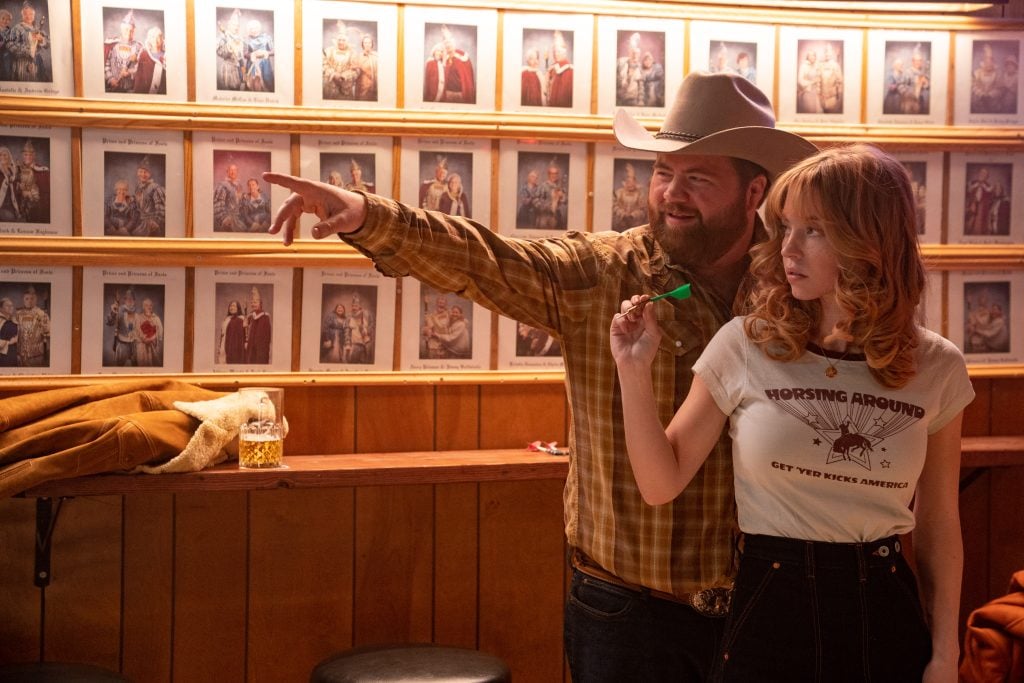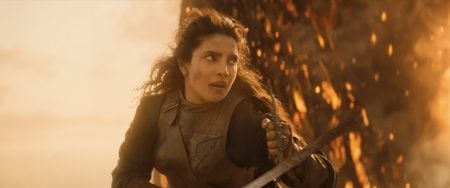The Western has always lived with ghosts. Ghosts of cowboys and outlaws, of wide skies and endless dust, of gun smoke curling in the evening light. It’s one of the most myth-heavy genres in American cinema, a canvas where the same images—lonely riders, frontier justice, survival at the edge of civilization—repeat like old folklore. For decades, filmmakers have either polished those myths until they gleamed or taken great pleasure in smashing them apart. What Tony Tost does with Americana is neither. Instead, he leans into the shape of the Western, respecting its silhouette, but quietly rewrites its pulse. This isn’t parody or pastiche—it’s something more searching. Something that aches with longing, history, and the need to start again.
Set across South Dakota’s windswept stretches, Americana is structured like a fractured fable. Its story unfolds in pieces, following characters whose lives crash together around a stolen Native artifact—a Lakota ghost shirt. That single object becomes the center of a storm: a mother trying to escape violence, a dreamer aching for connection, a waitress whispering her way toward a future, and a Native leader fighting to reclaim what was stolen. On paper, it sounds like another treasure-hunt thriller, but Tost isn’t interested in easy thrills. He’s interested in people—messy, tender, wounded people—and the desperate choices they make when survival and hope are both on the line.
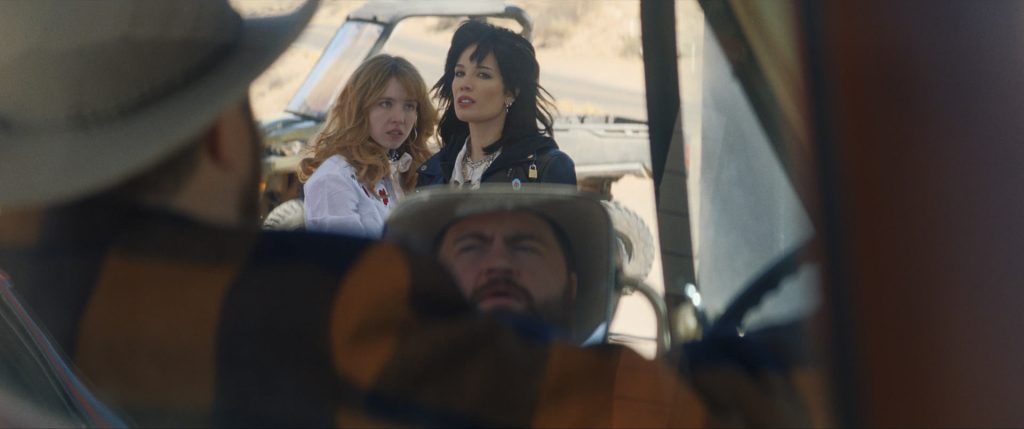
Sydney Sweeney plays Penny Jo, a waitress with big dreams but little voice, and her performance is one of the film’s quiet treasures. She isn’t loud, and she doesn’t need to be. What she brings is presence—a stillness that’s alive with feeling. Every glance, every pause, every nervous stammer becomes loaded with vulnerability. There’s no showboating here, no begging for the spotlight. Instead, Sweeney crafts a character you want to lean closer to, someone whose silence feels almost combustible. Watching her is a reminder that she isn’t just a rising star—she’s an actress growing into roles that let her stretch and surprise.
Opposite her is Paul Walter Hauser as Lefty Ledbetter, a man whose heart is bigger than his luck. Lefty is a dreamer, clumsy in love and perpetually reaching for more than he can hold, but Hauser plays him with such open-hearted sincerity that he becomes deeply affecting. There’s something heartbreaking about watching someone so eager for kindness, yet so often punished for it. He may be a familiar archetype, but in Hauser’s hands, he feels achingly real—an emblem of how fragile hope can be in a world that doesn’t reward it.
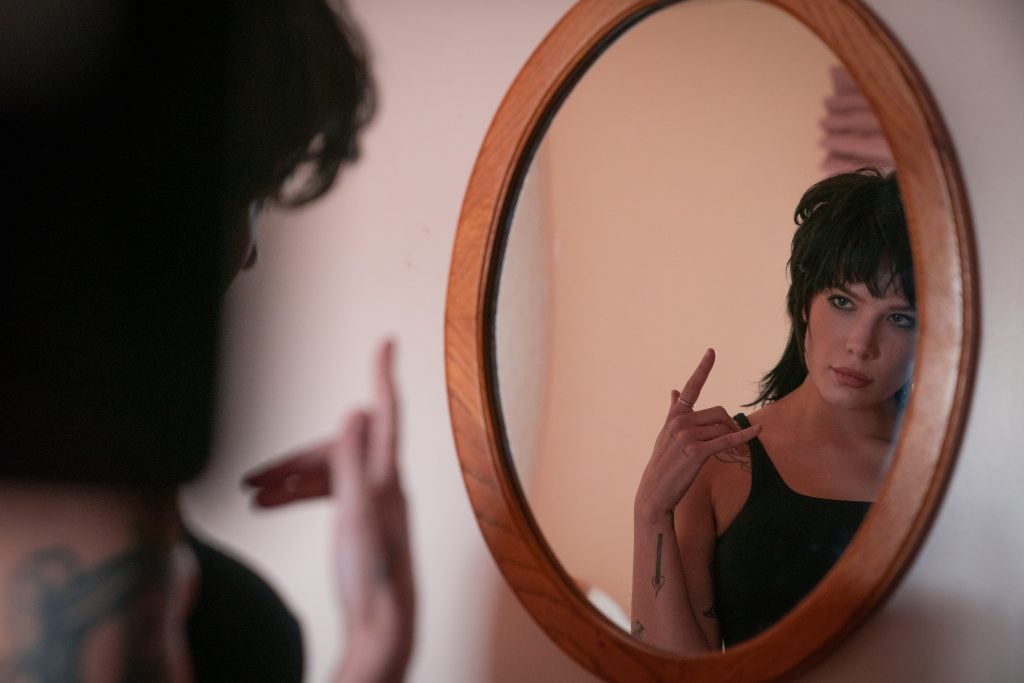
And then there’s Halsey, who is—surprisingly—the film’s standout. As Mandy, a woman chained to an abusive man while haunted by her past, she delivers a performance raw with pain and grit. Her character embodies the film’s central theme: the struggle to move forward, to break free, to carve out something better even when the odds are merciless. Halsey approaches the role with an edge that feels unpolished and lived-in, and it works. Her scenes cut deep because they don’t feel like acting—they feel like survival captured on screen.
Zahn McClarnon, too, leaves a lasting impression. As Ghost Eye, he is the film’s moral anchor, carrying both determination and a weary gravity. His presence forces the story to confront what so many Westerns have erased: Native history, and the way it has been stolen, commodified, and silenced. McClarnon’s performance doesn’t just add weight—it reframes the story entirely, grounding it in something larger than any individual chase.
If Americana falters, it’s in its pacing. The film simmers when it should blaze, drifting into stretches where tension should coil but instead loosens. For a story built on greed, betrayal, and survival, there are moments where urgency slips through the cracks. The finale delivers—blood-soaked and furious—but the middle doesn’t always carry that same sharp edge.
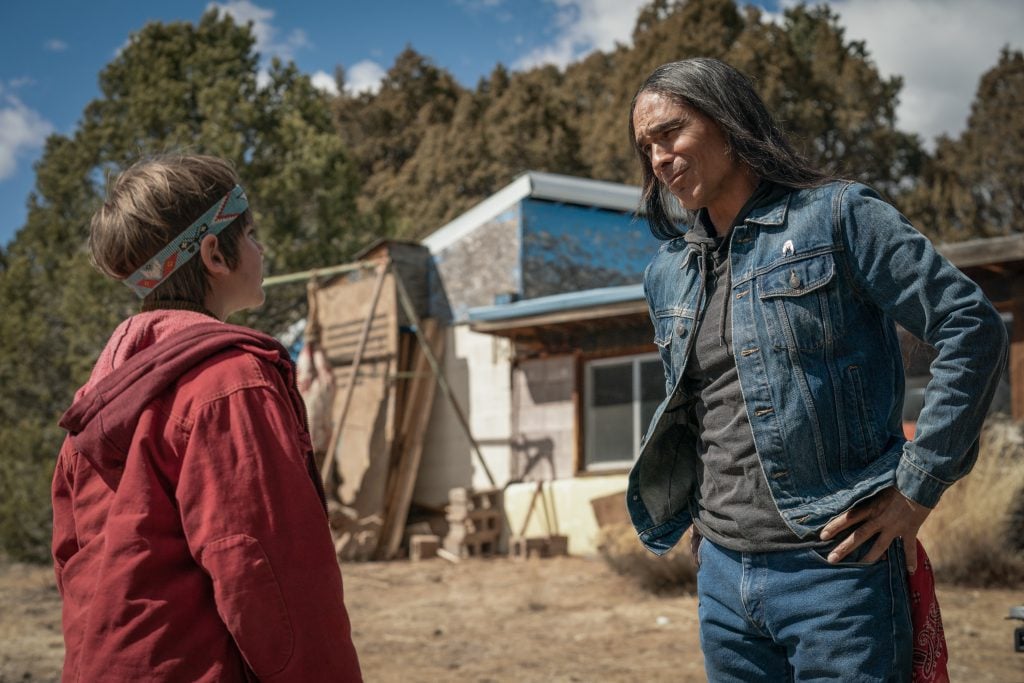
Yet, despite its imperfections, Americana lingers. It dares to take the Western’s familiar bones and infuse them with something contemporary, something tender and haunted. It isn’t about rugged men chasing glory—it’s about people clawing toward survival, chasing dreams, and facing the weight of history. It acknowledges what has been stolen, what has been silenced, and it asks us to look closer.
What I admire most is Tost’s refusal to rely on irony or deconstruction. He doesn’t mock the Western or hide behind clever tricks to make it feel relevant. Instead, he trusts that the genre can hold new voices and deeper truths. He lets the landscapes, the confrontations, the silences carry stories that were always there but rarely told.
Americana isn’t perfect—but it is alive. It’s a film filled with flawed, messy, unforgettable characters whose humanity cuts through the myth. In a genre too often ruled by legend and symbol, that heartbeat feels like a quiet revolution.
Americana is currently playing in theaters courtesy of Lionsgate.
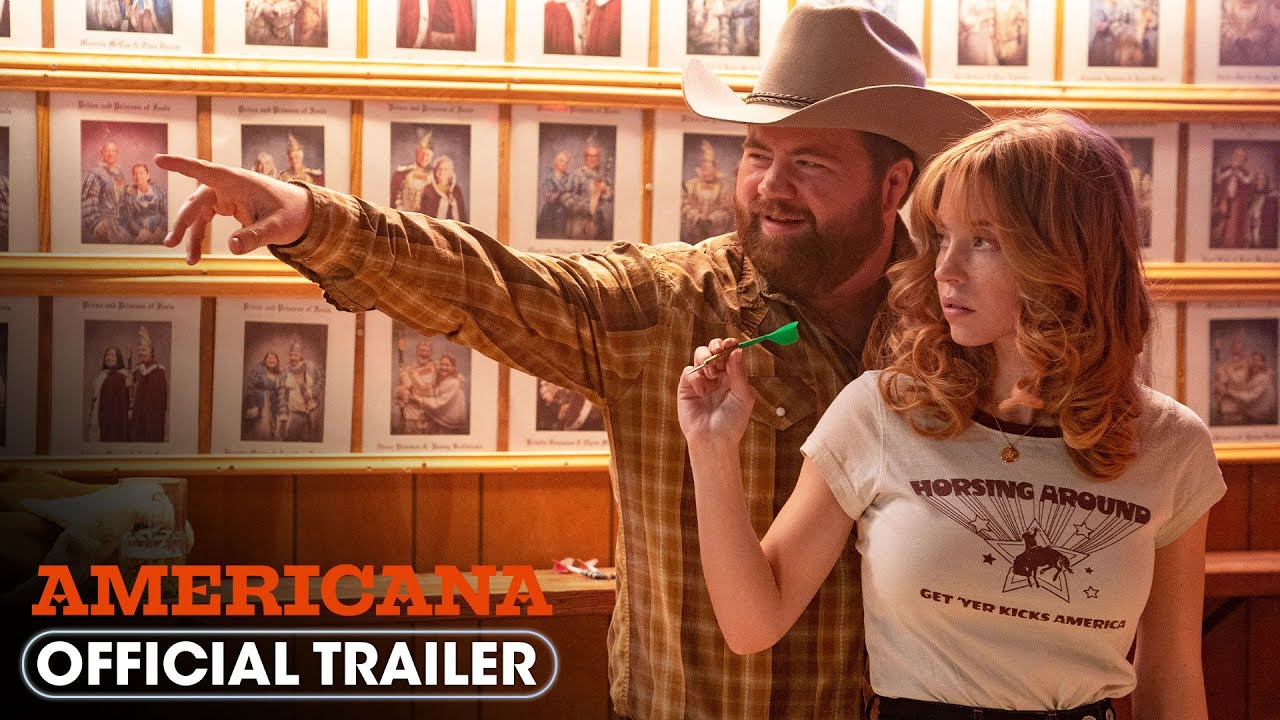
For a story built on greed, betrayal, and survival, there are moments where urgency slips through the cracks. The finale delivers—blood-soaked and furious—but the middle doesn’t always carry that same sharp edge.
-
GVN Rating 7.5
-
User Ratings (1 Votes)
8.5

It all started when I was a kid watching Saturday morning cartoons like the Spider-Man: Animated Series and Batman. Since then I’ve been hooked to the world of pop culture. Huge movie lover from French New Wave, to the latest blockbusters, I love them all. Huge Star Wars and Marvel geek. When I’m free from typing away at my computer, you can usually catch me watching a good flick or reading the next best comic. Come geek out with me on Twitter @somedudecody.


